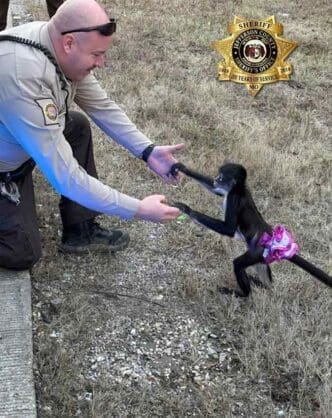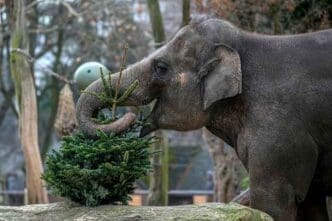In a systematic endeavor to manage and conserve wildlife, London Zoo has embarked on its annual animal census. This effort is not just a local requirement but a global initiative to enhance breeding programs for endangered species. This year’s census introduces notable new arrivals, including two infant gorillas named Juno and Venus, enriching the zoo’s biodiverse population.
The zoo’s enumeration includes a wide variety of species, ranging from alpacas to zebras and covering a diverse spectrum of mammals, birds, reptiles, and invertebrates. The meticulous counting serves as a crucial component of the zoo’s license conditions, paving the way for extensive data sharing with other zoos worldwide.
Glynn Hennessy, the lead primate keeper at the zoo, emphasized the importance of data sharing in modern zoos. According to Hennessy, the ability to trace the genetic lineage of each animal is invaluable. He stated, “We can sort of see the genetic pathway of every individual. We can see who their grandparents were, how they’re overrepresented, if they are underrepresented, so it gives us so much information to make sure that we’re breeding responsibly.”
The past year marked a significant milestone with the birth of not only the two baby gorillas but also three Asiatic lion cubs named Mali, Syanii, and Shanti. Such births are pivotal in bolstering the species’ population, contributing significantly to conservation efforts. Additionally, the zoo announced the arrival of 11 new penguin chicks and 53 frogs from Chile, named in homage to Charles Darwin. These frogs were introduced as a measure against a lethal fungus threat, a testament to the zoo’s broader conservation roles.
While keeping track of large mammals like the new gorillas and lion cubs is relatively straightforward, the task becomes more challenging with smaller and less conspicuous creatures. For instance, invertebrates present a unique challenge in identification and counting. This year, the zoo welcomed a new hive of honeybees, a single entity in the ledger despite its numerous inhabitants.
The annual stocktake at London Zoo not only fulfills its regulatory obligations but also serves a larger purpose in biodiversity conservation. By participating in international data exchange, the zoo plays a significant role in sustaining endangered species. This comprehensive survey aids in ensuring responsible breeding and helps maintain the ecological balance necessary for the survival of numerous species.
Source: Local10








